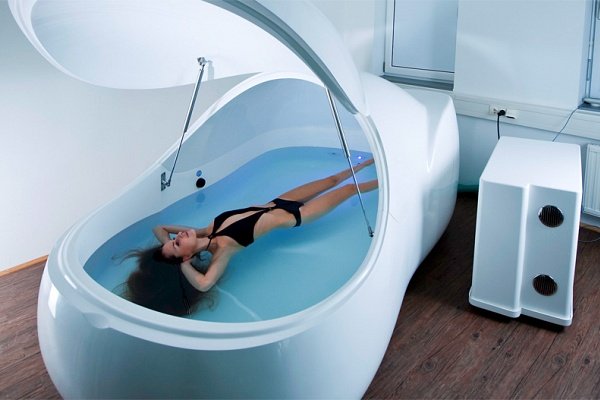12 March 2021, by i-sopod
How often do you feel exhausted? Do you find yourself sleeping 8+ hours a night and still waking up feeling tired?
The answer isn’t simply sleep more. Nor is it necessarily to do with the quality of your sleep either…
We seem to have merged our understanding of sleep and rest – considering the two to be almost synonymous.
We exist in a ‘culture of high-achieving, high-producing, chronically tired and chronically burned-out individuals’, says Saundra Daulton-Smith MD, with two modes of being: ON or OFF, and nothing in between.
Proper rest is essential for a both a healthy mind, and a healthy body. Dr Saundra Daulton-Smith gave a talk on TED earlier this year introducing her theory of seven types of rest. This is illuminating to many of us, who slump in front of a TV series to ‘switch off’ in the evenings, or crash into bed when we’re done buzzing around all day, and then wonder why we’re so tired…
‘Sleep and Rest are not the same thing. We have incorrectly combined the concepts of sleep and rest, and in doing so, we have dumbed down rest to the point [that] it appears ineffective.’ – Dr Daulton-Smith
Here are 7 Reasons Why You’re Tired All The Time…
Dr Daulton-Smith’s model of the seven types of rest is a vital compass to understanding why you’re feeling tired constantly, despite how much sleep you’re getting. Here are 7 ways in which your energy may be depleted, paired with the 7 types of rest:
1. Creaky bones and aching muscles? You’re not giving your body the break it needs to restore, and you need some Physical Rest.
2. You may find yourself feeling sluggish, lacking motivation or fresh ideas, despite maintaining a healthy lifestyle. What you need is Creative Rest, as a means to breathe some inspiration into your daily life.
3. The next one one feels especially pertinent, in a world where we’re all increasingly glued to our devices, and often in noisy, bustling stimulating environments; our non-stop lifestyles quite easily lead to a sensory overload. We all need to take more Sensory Rest, to really give our systems a chance to shut down and relax.
4. If you have a Social Rest deficit, you’re likely someone who can’t say no out of fear of letting people down or out of FOMO (fear of missing out). The result is you stretch yourself way too thin, with a hectic social calendar of meet ups (or zoom sessions), which often you’re too tired to properly enjoy.
5. The need for social rest is often coupled with a need for Emotional Rest. This is you if you have a habit of giving all your energy to others, whether spending hours on the phone coaching friends through their problems, or running countless errands for your family, without leaving any reserve for yourself. This leaves you feeling depleted and exhausted.
6. If your brain runs at 100mph, and you have difficulty focusing on one thing because of the ever growing list of to-dos in your head, it’s time you took some mental rest.
7. Sometimes we find ourselves so caught up in our personal lives, consumed by the obstacles and challenges we face, that we can lose sight of the fact that our human lives are just one tiny part of a much bigger cosmic picture. This is where Spiritual Rest comes in. Finding the means to zoom out, see the vaster perspective of life on this planet, in the universe, in order to feel humbled and grateful for life itself.

How can I rest more effectively?
Now we’ve outlined the 7 areas of rest, and you’ve had a chance to identify which of them you’re deficient in, here are some steps you can take to restore your energy and rest more effectively:
- Physical rest can be a passive or active form of rest, depending on what your body needs most. If you need to fully recharge, passive rest in the form of a lie down or a nap will do wonders. Otherwise, active rest, such as yoga or a massage, will help on a therapeutic level to get your circulation going and dissolve any physical tension.
- You can’t expect to feel motivated or inspired if there is no fresh content coming in… whether it’s a walk in nature, or refreshing your living space with plants and artwork you love, or going to an exhibition, there are various ways to step out of the mundane, rediscover that sense of wonder, and give yourself creative rest.
- If you feel like you never get a break from the screens, having a tech curfew can be a very effective way of getting sensory rest. Close the laptop and put your phone on flight mode and out of arm’s reach at least an hour before bed. Keep tech out of the bedroom, get a good old alarm clock, and be mindful of how soon after you wake up you reach for your phone.
- In order to get the social rest you need, replace FOMO with JOMO! The joy of missing out. Because sometimes having some solo time is exactly the medicine. Take a long bath, curl up with a book, and embrace your own company to fully recharge. Taking this time of social rest will mean when you dive back into your social life you’ll be relaxed and present, sharing the best of yourself, and therefore more fun to be around.
- For some of us, taking emotional rest is tricky, when we’re so programmed to put others’ needs before our own. Self care and self love are essential in order to show up fully for others. If you struggle with taking emotional rest, you might benefit from learning how to set healthy boundaries, as boundaries are key to allowing yourself to put your own needs first.
- In order to take mental rest, try setting reminders to step away from work and take frequent 2 minute breaks. Focusing on the physical, and breaking a sweat through exercise is another great way to clear your overly busy mind and give your brain a rest.
- You can find spiritual rest through meditation, time in nature, or by creating a ritual at home, to connect to the universe at large and therefore reconnect with yourself on a higher level.
How Floatation Can Help You Rest
One easy way of ticking a number of these boxes at once is by trying floatation. Here are some of the ways in which an hour in a float tank can help you restore your balance with the 7 types of rest:
- In a float tank the high density of Epsom salts alleviates the pressure of gravity, allowing your muscles to really relax. This is one of the most effective forms of physical rest you can get – which is passive, and still deeply therapeutic.
- Many artists have lauded the benefits of floating regularly to enhance their creativity.
- Thirdly, floatation is the best form of sensory rest you can get! Also known as sensory deprivation tanks, float pods were designed with the exact purpose of giving your senses a much needed rest.
- Social and emotional rest combine when you say brb to the outside world and step into a float pod for an hour. You’re taking time out for yourself, in a float tank, and no one can argue with that. Schedule in a visit to a float centre at least once a week to really restore emotionally and socially.
- Did you know that through sensory deprivation the brain starts operating on theta waves? The most relaxing of all mental states, read more about how floatation works on the brain and induces mental rest here.
- Finally, many people have commented on how the womb-like experience of floatation can be spiritually expansive; as you allow your thoughts to slow down, and your body to relax, you enter a state of being in which you feel more lucid and connected with the essence life itself. If that makes little or no sense to you, that’s just another reason to try it for yourself.
The seven types of rest provide a great checklist to come back to when you’re exhausted, running low on energy, and unsure on what will pick you back up. By giving yourself the type of rest you need you can ensure you’ll truly restore your energy. It’s a timely reminder, in our fast paced world of stimulation, that sometimes we all need proper time out in order to then show up and live life to the fullest.
Header Photo by Luis Villasmil on Unsplash






